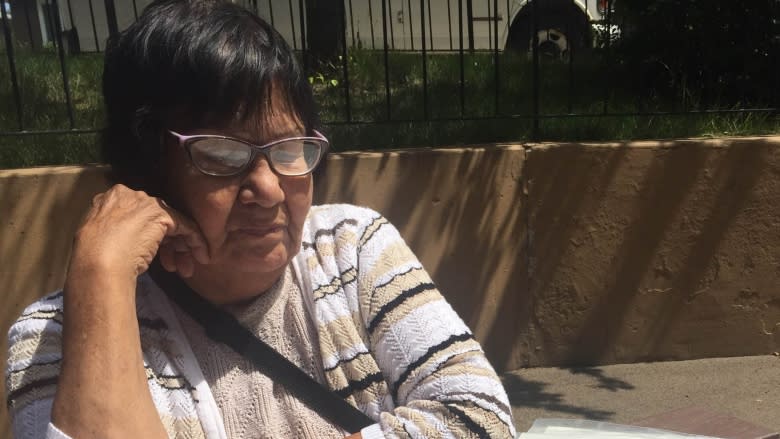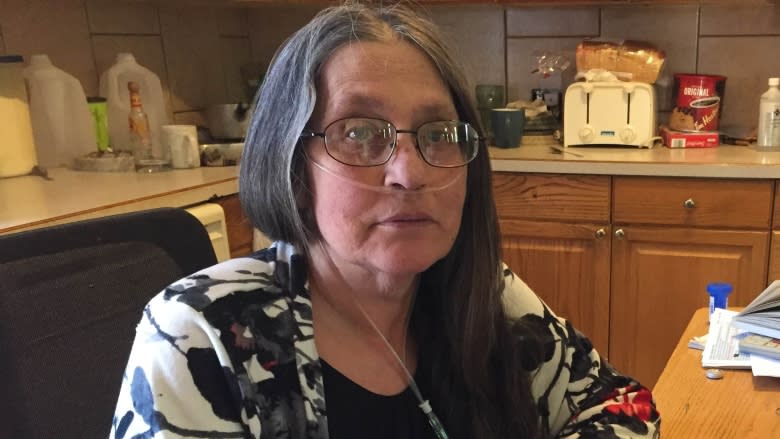Alberta mother wants police to be held to account in MMIW inquiry
More than two decades after Rhonda Running Bird disappeared while on a hunting trip with her common-law husband south of Rocky Mountain House, Alta., her mother, Mavis Crowchild, says she still wakes up every morning wondering about her daughter.
"I left it in God's hands and I've been patient. Now it's 21 years and I'm still being patient, waiting for answers from my daughter," she said.
Crowchild is looking to the long-awaited national inquiry into missing and murdered Indigenous women to help her find some of those answers, but it's unclear if it will.
The federal government is set to release details about the inquiry on Wednesday, sources have told CBC News.
There's already concern among advocates for the missing and murdered that it won't go far enough. A draft plan obtained by CBC News shows the inquiry would focus largely on violence prevention and makes no specific mention of police investigations.
But a review of how the RCMP handled her daughter's disappearance is precisely what Crowchild wants. "In my heart, I know there's a lot of missing pieces there," she said.
In March 1995, Running Bird, 25, was on a hunting trip in the Swan Lake area with her 18-month-old son, her common-law husband, Fred Lagrelle, and a female relative of his, when their truck got stuck.
Police believe Running Bird and Lagrelle left the truck that night and walked in different directions to look for help.
Running Bird, 25, never returned. She wasn't reported missing until two days later, when the rest of the hunting party made it out of the bush.
Despite extensive searches, her body was never found.
RCMP found a firearm in the area and confirm they had a person of interest in the case who died recently, but they say there's not enough evidence to determine whether Running Bird's disappearance involved foul play.
Crowchild recalls an exchange she had with one of the officers that left her feeling her daughter's disappearance wasn't being investigated properly. "I asked him, 'So, what do you think happened to Rhonda?' And he said, 'Oh, she must be drunk on the streets in Edmonton, that's why we can't find her.'"
The comment still angers Running Bird's brother, Keith. "You know, they just thought, 'Oh, it's another native case.'"
He hopes the inquiry into missing and murdered Indigenous women results in a review of the case, and a fresh look at whether there was foul play.
"I would like it to be all investigated over again to prove, you know, that she didn't just go missing out of thin air."
RCMP declined an interview about the case.
For Running Bird's family, there are aspects of the case that don't add up.
"She was trained as little girl where to go if she got lost. So she knew her culture pretty good. And that's what amazes me. How did she go missing? But nothing fits the picture," said Crowchild, noting that the site where the group was stranded wasn't far from a main road in the area.
"I've never given up. I think about it all the time," said Barb Wiebe, a volunteer search organizer and friend of the family. "I think, well, should we have searched this area, should we have done this, should we have done that? And then I think, well, she might not be where they said she was."
The case weighs on retired RCMP sergeant, Al Martin, who led a second search for Running Bird a few months after she disappeared.
"If it had been reported right away, instead of two days after the fact — which my understanding was a result of them being stuck and no one finding where they were or them not being able to get a ride to town or something — it might have had a different outcome," said Martin.
Martin was part of approximately 50 searches during his policing career. Running Bird's case is the only one that's unresolved.
"As far as the family goes, from their perspective, I can certainly understand why they want to make sure that every base is covered," he said. "If it was my child, would I still be looking? Absolutely."



